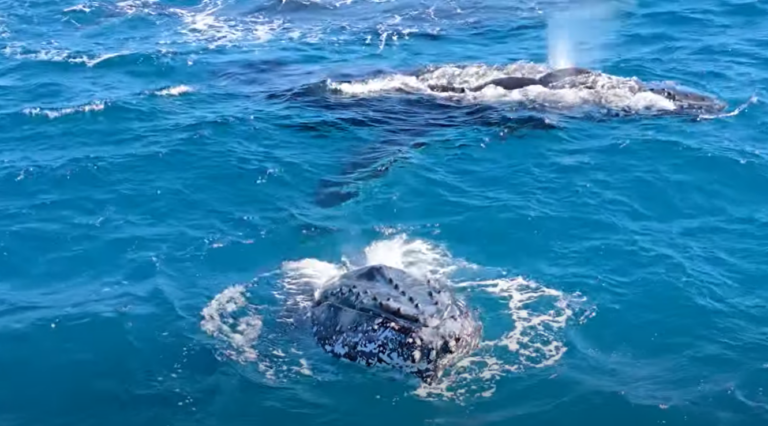When Boundaries Disappear, So Does Respect—A Wake-Up Call from Moreton Island
In my last blog, we explored how countries around the world are tightening access and drawing new lines—not to keep people out, but to preserve what matters most.
From sacred sites in Japan to marine sanctuaries in Thailand, the message is clear:
Welcome, but not at any cost.
Australia, on the other hand, has remained largely silent.
And I didn’t fully realise just how far we’d drifted… until I saw it for myself.
A Place Close to My Heart
Moreton Island (Mulgumpin) is one of those rare places where the ocean feels like it’s whispering stories from the past.
Where the dunes, sky, and sea hold a sacred stillness.
It’s been on my bucket list for years.
Recently, my daughter and I finally made the trip—a healing weekend after a tough chapter.
We weren’t just there to unwind, but to reconnect—with nature, with each other, and with something deeper.
But what I witnessed left me with a pit in my stomach.
Not just because of the beauty.
But because of the blatant disregard.
When Tourism Turns into Performance
On our last day of activities, we joined a whale watching tour—a chance to see humpback whales migrating along the coast, and maybe spot dolphins, turtles, or sharks.
What unfolded was anything but serene.
A large group of tourists loudly dominated the boat—shouting, pushing, ignoring instructions from the crew.
Spitting overboard. Talking over the guide. Treating the tour like a private party.
And yet, just metres away, the whales were calm, curious, and generous with their presence—swimming under the boat, circling us, even hugging the vessel.
Nature at its finest.
But at the bow of the boat, it felt like a feeding frenzy.
A complete contrast to the majesty around us.
And no one intervened.
My daughter was struck in the head by a flailing arm and selfie stick.
I could not believe the chaos that unfolded… and all I could think was:
“If I went to your country and behaved this way, I’d be arrested or deported. So why is it okay here?”
And I’ll admit something else…
In that moment, I felt myself shifting. A line starting to form inside me—them and us.
It’s not how I usually see the world. But the frustration hit hard—enough to jolt me out of presence.
It reminded me just how quickly disconnection and judgement can creep in… even for those of us who try to lead with compassion and awareness.
And that awareness matters—because when our perspective narrows, our decisions often follow.
If we don’t catch that line as it’s forming, we risk reinforcing it.
And right there, on that vessel, I realised: This isn’t just about tourism. It’s about the mindset we carry into every space we enter—including leadership.
This Is Bigger Than a Boat Trip
This wasn’t a one-off.
We saw the same themes across multiple activities—large tour groups, no accountability, and staff powerless or unwilling to set boundaries.
The disrespect was loud.
But the silence? Even louder.
No staff stepped in.
No expectations were reinforced—perhaps because none were ever clearly set.
And no one wanted to “make a scene.”
That’s when it hit me:
This is what happens when we normalise poor behaviour in the name of revenue or convenience.
We lose the very thing we claim to be showcasing.
The Cost of Staying Silent
This is how it starts:
• One operator looks the other way.
• One guest decides it’s not worth the confrontation.
• One visitor behaves poorly—and gets away with it.
And slowly, disrespect becomes normal.
What shocked me most wasn’t just the behaviour—it was the quiet acceptance of it.
I later spoke with one of the crew members.
Their response?
“It happens all the time.”
As if this is simply the price we pay for tourism.
But that’s not tourism.
That’s exploitation—of land, of wildlife, of people, of culture.
We Can Do Better—But Only If We Choose To
This blog isn’t about blame.
It’s about responsibility.
It’s about drawing a line.
Australia doesn’t need to become unwelcoming.
But we do need to become braver.
Braver in setting expectations.
Braver in educating visitors.
Braver in calling out behaviour that doesn’t belong—no matter where it comes from.
And braver in holding tourism operators, councils, and governments accountable for what they permit.
Because when you let boundaries blur, respect fades.
And once that’s lost—it’s hard to get back.
A Message to Fellow Leaders, Operators, and Everyday Australians
We’re the custodians of this land—whether we lead a business, a boat tour, a region, or a conversation.
We can protect what’s precious.
But we must be willing to do the hard things.
To say no.
To speak up.
To enforce the quiet rules that keep places sacred.
This is our chance to lead—not with control, but with care.
To redefine what “welcome” looks like—and make sure it includes respect.
Because what I saw on that vessel wasn’t just an isolated moment—it was a symptom.
A warning sign of a deeper problem playing out across our country.
Because if we stay silent in the small moments…
What does that say about the bigger ones?
Like the land and islands being leased, sold, or left to rot.
Like Brampton—once vibrant, now neglected, its cultural and environmental value fading.
Like the spaces we’ve handed over—without accountability, oversight, or care.
We’re not just losing moments.
We’re losing meaning.
We’re losing what makes these places worth visiting in the first place.
And if we don’t change course, we may find we’ve traded something sacred…
for something soulless.
But that’s where we go next.
Next in this blog series
“When Did Tourism Stop Being About the Place?”
From the slow erosion of our islands to the rise of performative travel, we’ll connect the dots between misbehaviour, mismanagement, and what Australia risks losing if we don’t reclaim our responsibility.
Want future posts like this?
Subscribe to Unearth Risk Insights and Risk Rebels: Beyond the Surface for more bold takes on leadership, culture, and care.
Risk Rebels – What Say You?




